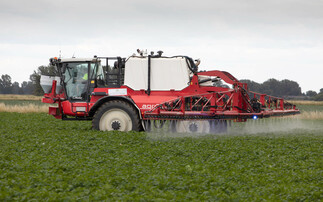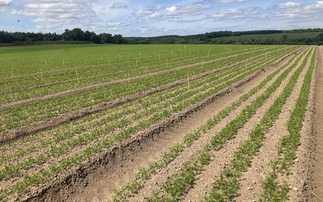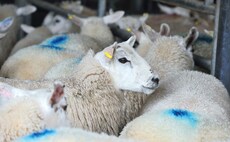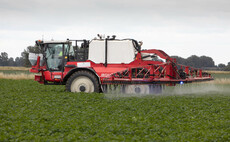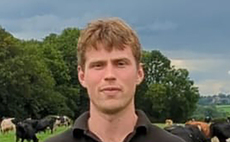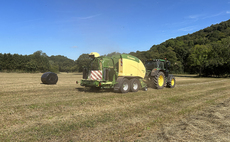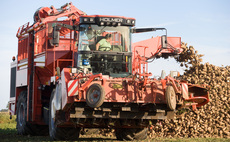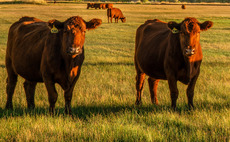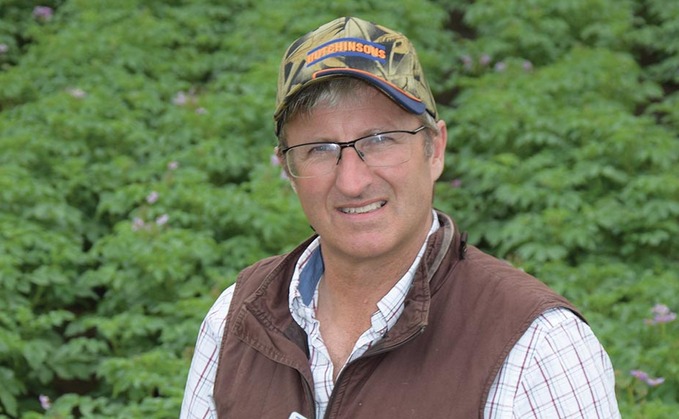
Darryl Shailes
There has not been very much happening in the garden recently, as it's still very busy on farm. I saw a family of ducks and some pheasant chicks in the long grass and meadowsweet areas that are obviously providing enough cover from the various predators that also live there, including our cat.
The biggest event is that the thatch is finished. We had the topping out ceremony and Clarice the straw pheasant was put in pride of place up top. The thatcher is the 14th generation of his family who have been thatching for 400 years.
Unfortunately, as always with older properties we have now got to re-roof one of the outbuildings as it was collapsing. Luckily this is pantiles, but still we could have done without the expense of it for now.
Potato blight
I have seen a bit of blight which is disappointing as we've used a strong programme, but it was on headlands and areas where the sprayer wasn't quite getting the coverage needed. We've now changed to the Syngenta 3D 90 nozzles alternating forward and backwards so hopefully that will help. The sample was sent to the James Hutton Institute and confirmed by Fight Against Blight. It's great that this service is up and running again. With the demise of AHDB Potatoes, it's essential that this is available, and we must thank the industry supporters who have come together and financed it.
With the demise of AHDB, it's up to the industry to fund research into the potato crop. To this end, Hutchinsons recently hosted our Potato Demo and Trials, by kind permission of AH Worth at Holbeach and we must thank the manager Simon for all his efforts on making it a great day.
The event was very well attended with over 50 growers along with several allied trade members. Focussed on sustainable potato production including the PCN tolerance of a range of new potato varieties against some standards, it was good that several seed producers were represented to give us some detailed information on their new varieties.
We also looked at the same varieties and their response to various post-emergence herbicides - information that is always scarce when they first come to market.
Representatives of the Cambridge University Potato Growers Research Association (CUPGRA) discussed wireworm, providing guidance on management as it's an increasing problem for many growers. We have been bait trapping at the site and had some pheromone lures so we could see that even though the silt area is not regarded as bad for wireworm, they are still present, and we must wonder if the damage is being masked by the fosthiazate granules that are used for PCN.
We also had two researchers from Harper Adams giving presentations. Ben was speaking about biological control of wireworm and had an adult click beetle land on him during a talk to emphasise that they are around. We also had a student giving her first talk to a group of farmers about her PhD,on the effects of different cover crop on free-living nematode populations, which Hutchinsons are sponsoring. She was very nervous, but did a very good job. Well done, Vongai.
A range of foliar treatments were demonstrated that we are also trialling on other sites, to help with the sustainability of potato production.
All in all, it was a very good day, and we'll be having a results meeting later in the year.
Sugar beet
Sugar beet is looking great in the main and the recent rains have really pushed the crop on. Beet moth has been a topic of conversation and adults have been caught in some of BBRO's and our own pheromone traps, and the odd caterpillar been found. Hopefully, the rain and the strong crops will keep the lid on the damage and we will not have to treat for it.
Fungicides will be going on shortly and a broad-spectrum treatment for rust and mildew will be needed, but growers will need to keep a lookout for cercospora warnings from BBRO if the weather becomes suitable. It's not hot enough at present but if we start to get the heat they are having Europe then we will need to react.









